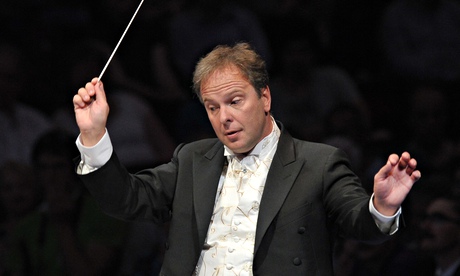
Orchestral concert of the year? It would need to be outstanding to better this one. The evening brought together three important works from the early 20th century, culminating in Ferruccio Busoni’s gargantuan piano concerto of 1904 – an irresistible draw, as it’s a piece that seems to come around about as often as Halley’s comet. For Busoni anoraks, the fact that Sakari Oramo and the BBC Symphony Orchestra were on blazing form all evening was simply a bonus.
But it wasn’t only the Busoni. Given the need for a chorus in the last movement of the concerto, the programmers took the opportunity to give a rare outing to Rachmaninov’s 1902 cantata, Spring. This mixes a bubbling evocation of nature with some heavily over-written brass and choral grandiloquence, setting a nasty Nekrasov poem in which the arrival of spring spares the writer the need to murder his unfaithful wife. Hmmm. Igor Golovatenko was the idiomatic baritone soloist.
Amid this, Nielsen’s second symphony might have felt an afterthought too far. But this concert was the latest in Oramo’s Nielsen cycle, and he tore into the choleric opening movement of a symphony that is dedicated to Busoni. At times one feared that the approach to the work in which Nielsen found his true voice would be to play everything as loudly as possible. But in the last movement there was, as there must be, a proper sense of symphonic resolution.
The extraordinary thing about Busoni’s five-movement concerto is that though so much is exaggerated and extended, the work is never boring. Its structure is clear and imaginative, with anchoring melodic ideas. It builds intelligently across a vast range of styles and tonal material. The tarantella craziness of the fourth movement opens the way towards the pantheistic last movement hymn to Allah. Busoni is 20th-century music’s path not taken and, in this piece above all, one can see why. Yet, in the utterly reliable hands of Garrick Ohlsson, who never faltered in the sometimes unrewarding task of making himself heard amid the surrounding orchestral grandeur, it made for an unforgettable experience.
• Available until 12 January on iPlayer.

